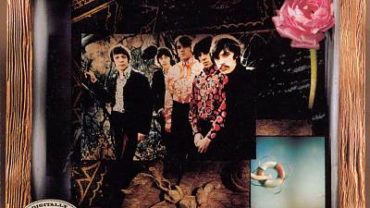Procol Harum Top Songs from the Billboard Top Canadian Hit Singles. Canadian Top 100 Singles Billboard Charts.
1967 A Whiter shade of pale – 1
1967 Homburg – 15
1972 Salty Dog – 84
1972 Conquistador – 7
1991 All Our Dreams Are Sold – 95
Procol Harum (/ˈproʊkəl ˈhɑːrəm/) are an English rock band formed in 1967. They contributed to the development of symphonic rock, and by extension, progressive rock. Their best-known recording is their 1967 hit single “A Whiter Shade of Pale”, considered a classic in popular music and one of the few singles to have sold over 10 million copies.[2] Although noted for their baroque and classicalinfluence, Procol Harum’s music also embraces the blues, R&B, and soul.
The Paramounts, based in Southend-on-Sea, Essex, led by Gary Brooker and Robin Trower and including Chris Copping and B. J. Wilson, scored a moderate British success in 1964 with their version of Jerry Leiber and Mike Stoller’s “Poison Ivy”, which reached number 35 in the UK Singles Chart.[citation needed] Unable to generate any follow-up success, the group disbanded in 1966.[3]
The Paramounts were signed to EMI UK for their releases; until one day before Procol Harum linked with EMI UK again, they were called The Pinewoods. A last-minute offer from Chris Blackwell’s fledgling Island Records label was rejected by Brooker and band.
In April 1967, Brooker began working as a singer-songwriter and formed Procol Harum with non-Paramounts Keith Reid (poet), Hammond organist Matthew Fisher, guitarist Ray Royer and bassist David Knights.[3] Guy Stevens, their original manager, named the band after Gus Dudgeon’s Burmese cat.[4] The cat’s Cat Fancy name was Procul Harun, Procul being the breeder’s prefix.[5]
In the absence of a definitive origin, the name attracted various interpretations,[6] being said to be Latin for “beyond these things” (but the correct Latin translation of “beyond these things” is “Procul his”)[7] or translated as “of these far off things”, the genitive plural “harum” perhaps agreeing with an understood “rerum”, “things”.[8] The name of the band is frequently misspelled; often with “Procul”, “Harem”, both, or other variations.
